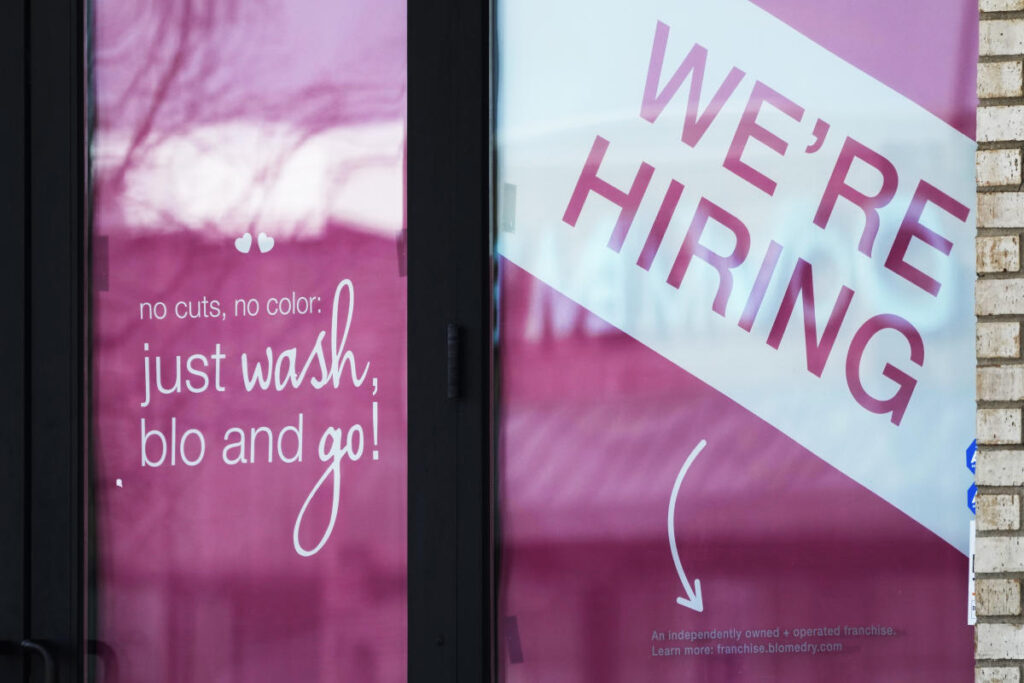The recent Associated Press-NORC Center for Public Affairs Research poll reveals a stark contrast in economic sentiments among Democrats and Republicans following Donald Trump’s election victory. While the unemployment rate remains healthy at 4.2%, and the stock market has seen positive growth, many Americans seem to assess economic conditions more through a political lens rather than through traditional economic indicators. This polarized viewpoint indicates ongoing challenges for both President Joe Biden during his administration and for Trump, who may face hurdles in translating his economic policies into tangible political support despite optimism among his party.
The poll reflects that as many as 70% of U.S. adults characterize the economy as “very or somewhat poor,” a noticeable increase from previous months, and this gloomier perspective is predominantly supported by Democrats. In contrast, optimism about the economy’s future appears to resonate strongly with Republicans, particularly as they anticipate Trump’s return to the White House and possible policy changes. The stark shift in sentiment among Democrats is underscored by the fact that only half now rate the economy as “good,” a significant decrease from two-thirds who viewed it positively just a few months prior. The concerns regarding inflation and rising costs continue to dominate public discourse, influencing perceptions across party lines.
Despite favorable factors such as a solid job market and falling inflation rates, many Americans grapple with daily financial pressures. Individuals like Karen Claussen from Ohio express fears about future tariffs leading to increased prices for everyday goods. Financial stress is particularly exacerbated during the holiday season, with families worried about affording gifts and basic necessities. Jeremie Spratley from Michigan shares his struggle to provide for his family and has concerns that, while he voted for Trump due to economic discontent, it is the wealthy that benefit most from his policies. This highlights a broader trend where lower-income households exhibit heightened anxiety regarding financial stability compared to their higher-income counterparts.
Republicans, while often negative about the current economic conditions, express a belief that 2025 will bring improvements. This optimistic outlook is not mirrored as strongly among independents and Democrats. Historical trends show that public sentiment frequently shifts based on who occupies the presidency; just as Democrats began to feel better about the economy after Biden took office, Republicans now show robust expectations for the future as Trump returns. This cyclical pattern emphasizes how political affiliations can significantly influence individual evaluations of economic wellbeing.
As Trump outlines his economic priorities, questions remain regarding the feasibility and implications of his policies, such as universal tariffs and tax cuts. While Trump promotes these initiatives as catalysts for economic growth, critics worry that they may lead to increased national debt and inhibit long-term progress. Nevertheless, some voters like Benjamin Lebert see Trump as a beacon of change from the current status quo under Biden, suggesting a desire for any shift from current policies, even if the direction remains uncertain.
The poll, conducted with a representative sample of 1,251 adults, sheds light on the nuanced relationship between economic policies, public perception, and political leadership. With a margin of error of 3.7 percentage points, the results illustrate both the complex emotional landscape surrounding economic assessments and how personal circumstances deeply influence individual views. As the political climate evolves and economic conditions fluctuate, the interplay between economic realities and perceptions will remain crucial for both parties as they engage with constituents and shape their narratives ahead of future elections.

